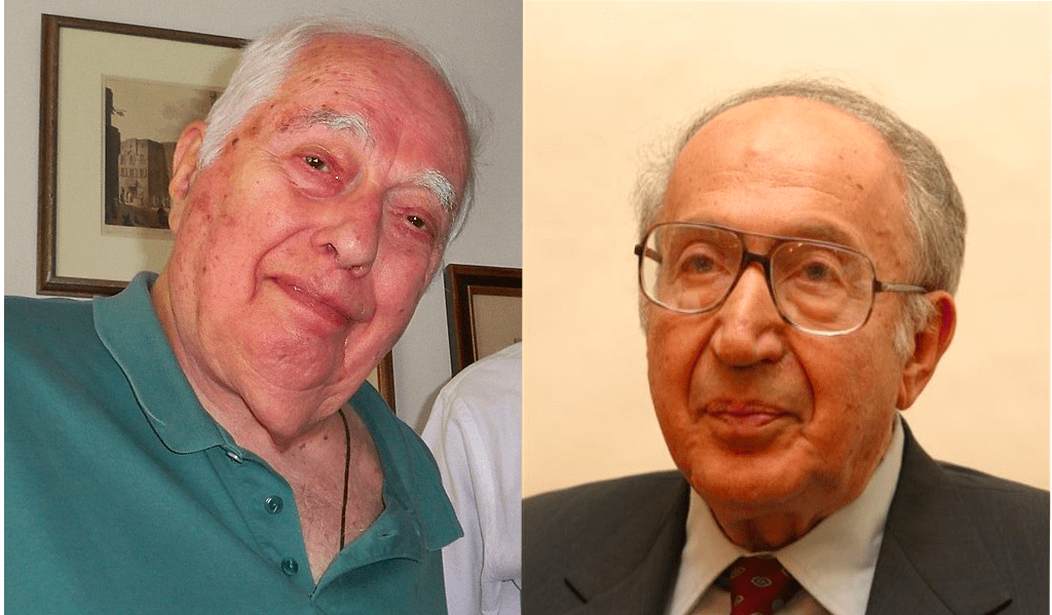We are amidst a great transition. One important sign of the big change is generational: the defining minds of the recent past are leaving us. Two of the finest took their leave of late.
When we moved to Washington from Rome in 1977, we soon became friends with Bernard Lewis and Richard Pipes, both of whom have just passed away. They were the epitomes of the public intellectual in the last generation of the Cold War. Bernard at Princeton, Dick at Harvard. Both challenged the establishment, which took nerve, and they did it with rare elegance.
Both spoke in complete paragraphs, which made it a rare pleasure to be present at their talks, albeit both had distinct foreign accents, Bernard being a Brit and Dick a Pole. But those were years in which many of our finest professors were refugees, many of them — like Pipes and Lewis — Jewish, so it wasn’t all that surprising to sit in a classroom or a public lecture and receive dazzling insights about America in a foreign accent.
Both were friends, and informal advisers, to Scoop Jackson, the great senator from Washington state. If Scoop had become president (instead of Carter. Think of that!), they would have had an even greater effect on U.S. policy. As it was, they were significant players. Pipes was a major figure already in the ’70s, when he headed the so-called Team B that challenged the CIA’s assessment of Soviet military strength. As Steve Hayward reminds us:
Team B examined more than just the number of missiles or their “throw weights” (which was a centerpiece of arms control controversies in the 1970s). Team B thought Soviet missiles were more accurate than previous estimates, and that Soviet efforts at civil defense were more extensive. Team B’s conclusions were stunning. “The evidence suggests that the Soviet leaders are first and foremost offensively rather than defensively minded. . . While hoping to crush the ‘capitalist’ realm by other than military means, the Soviet Union is nevertheless preparing for a Third World War as if it were unavoidable. . . Within the ten year period of the National Estimate the Soviets may well expect to achieve a degree of military superiority which would permit a dramatically more aggressive pursuit of their hegemonial objectives. . .” (Emphasis in original.)
Pipes served on Reagan’s National Security Council, and was arguably the person who shaped our Soviet policy in those years. He did not believe, as did many of the leading “Sovietologists” in the late Cold War, that it was possible to reform Communism. Thus, we had to choose between consigning it to history’s trash heap, or finish there ourselves. “We win, they lose,” as Reagan put it.
Such activities earned him a reputation — in large part the product of Soviet sympathizers and spread by the vast disinformation network — as “anti-Soviet,” just as Bernard Lewis was branded “Islamophobic.” Both were total distortions. Pipes and Lewis both strived, with considerable sympathy, to understand our foes. The Wall Street Journal printed an excerpt from Pipes’ memoirs that shows what he was about:
Russia is obsessed with being recognized as a “Great Power.” She has felt as one since the 17th century, after having conquered Siberia, but especially since her victory in World War II over Germany and the success in sending the first human into space. It costs nothing to defer to her claims to such exalted status, to show her respect, to listen to her wishes.
In like manner, Bernard took great pains to understand the revival of Islamism that emerged in the ’80s and ’90s. Remember that he was by then in his eighties, an age when most of us have ceased to write major works. Yet he achieved global fame and influence after 9/11, and often said, with typical irony, that he owed his success to Osama bin Laden, who, by the way, he respected for his elegant language and clear thought. Bernard wrote 32 books, and his brilliant scholarship earned him warm welcomes from Middle East leaders from Israel and Egypt to Jordan and Turkey, in each of whose languages he was elegantly fluid.
He was arguably the first in our part of the world to recognize that we had to understand the power of the Islamic faith. This was well appreciated by Dick Cheney, to whom Bernard was a constant source of wisdom. By 2001, he was already a major figure on the world stage:
Well before the Yom Kippur War, he was tasked by Egyptian diplomat Tahseen Bashir with bringing to Israeli leaders the message that President Sadat was ready to make peace. Bernard met with then prime minister Golda Meir, whom he describes as having a “personal filtration system” that allowed through only what she wanted to hear, as well as Moshe Dayan, Yitzchak Rabin, and Menachem Begin. Only the last was eager to pursue the diplomatic feelers.
It is appropriate that these two giants of scholarship and policy should leave us at the same time, thereby marking the passing of a great generation. It is not quite over yet. Their close friend and colleague, Walter Laqueur, is in poor health and their heavenly conversations will be incomplete without him. Alas for us. We will have to make do with blessed memories.









Join the conversation as a VIP Member